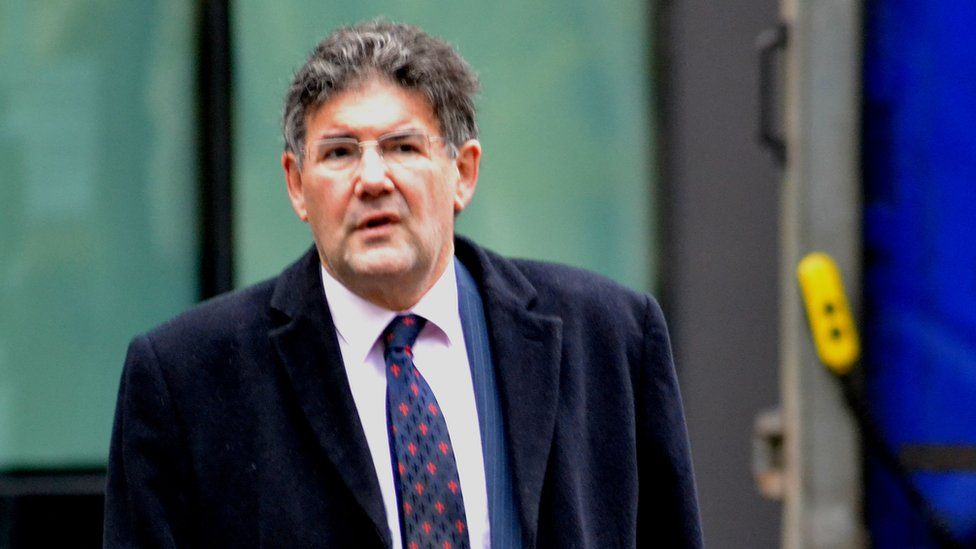GcMAF: Unlicensed HIV drug 'nearly killed patient'
- Published

Up to 75% of patients who reported taking an unlicensed drug marketed as a cure for autism, HIV and cancer, suffered side effects, a court heard.
One of 17 customers wrote she "almost died numerous times" in feedback read at Southwark Crown Court.
The patients were taking an unlicensed blood product sold by Guernsey-based Immuno Biotech.
Founder David Noakes, of Kent, admitted selling the drug, but maintained "99%" of customers suffered no side effects.
Noakes, 65, of Waldershare, Dover, pleaded guilty to charges of manufacturing, supplying and selling the unlicensed medicine and money laundering. He is expected to be sentenced next week.
'Almost died'
He told a Newton hearing, held before a judge alone to resolve issues disputed by the defence and prosecution, his firm had treated 10,000 people.
Only four of the 17 patients did not complain of side effects after taking the human blood-based product - said to be derived from GcMAF, a cancer therapy treatment, the judge was told.
One customer said she went into "toxic shock" and "almost died numerous times", with two ambulance trips and "endless ER visits".
Others described headaches, nausea, and abdominal pain, side effects Noakes described as "negligible" for people suffering "complicated" ailments.
Sixty-five per cent of people taking GcMAF improved, he added, rising to 85% if they took 10 or more vials of the product.
On Wednesday, the court heard from a member of a self-help group for people with chronic fatigue syndrome based in Chester.
Joan Crawford, a chartered chemical engineer, told the court about half of the 16 members who took GcMAF in 2012 experienced positive changes, while a quarter experienced no change, and just "a couple" felt worse in the short-term.
During the hearing Noakes defended GcMAF as a treatment for a number of conditions, but on Tuesday said he no longer claims it cures cancer.